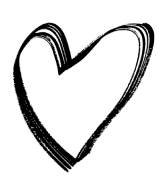Learn to Create a Facebook Campaign With Six-Figure Niche Experts
Dropshipping and Facebook ads go hand in hand. You start a dropshipping store and drive traffic there with ads. But you may also drive yourself crazy trying to understand them. In this video, six-figure dropshippers Rodney and Kory share their techniques with ads to provide you with a blueprint for yours.
Jessica: In just a second, you’ll hear from Kory and Rodney. Kory and Rodney made over $300,000 in less than nine months after watching one of our videos. Now, they’re running a successful niche dropshipping store with a heavy focus on branding and marketing. If you wanna hear more about how they succeeded on a shoe-string budget, make sure to listen to their interview on the Oberlo podcast.

Okay, so we know that dropshipping and Facebook ads go hand in hand. You start a dropshipping store with Shopify and then you drive traffic to your store with ads. You see Facebook ads are great at driving store traffic. But they’re also great at driving you crazy. Should CBO be on or off? Should you choose just mobile ad placements or should you go with automatic placements? Should you run engagement campaigns or conversion campaigns?
Facebook ads are so difficult to learn because there isn’t a one-ad set-fits-all formula. That’s why in we decided to do things a little differently. We gave four successful dropshippers a trending product from AliExpress and then we asked each dropshipper to take us through their ad process, from creating the ad itself to launching the Facebook ad campaign. These dropshippers did not let us down, but they also did not agree.
Every dropshipper had his or her own unique strategy for running successful Facebook ads. So to make it easier for you to follow along, we created a blueprint so that you can start running your own ads. Okay, ready for the dropshippers?
I just wanna say something before we begin. We’re gonna be going in-depth on Facebook ads. So we’ll throw around acronyms like CBO and we’ll talk about things like conversion events. If you don’t know what any of that means, don’t worry, just take a look at Oberlo 101. It’s the ultimate course for starting your first online store and scaling it with Facebook ads. Okay, time to find out what Kory and Rodney’s winning Facebook ads formula is.



Familiarize Yourself With the Product
Jessica: So you guys, I challenged you to create a Facebook ad for this cell phone holder.
Rodney: Yes.
→ Click Here to Launch Your Online Business with Shopify
Jessica: Had you even seen this before?
Rodney: No.
Kory: No.
Jessica: Did you know what it was when I sent it to you or did you have to like figure it out?
Kory: Yeah, we looked it up once you sent it to us and then, yeah, pretty quickly we saw the utility of it at least. So we became familiarized quite quickly.
Jessica: Okay.
Rodney: We definitely think it’s a winning product. I think it’s super popular.
Jessica: So the scene that I set was, you’ve got to sell this product with a Facebook ad. You’re new dropshippers. You’ve got a cold Facebook Pixel. You’re just starting an ad from scratch. After I told you that, what was the first step you took?
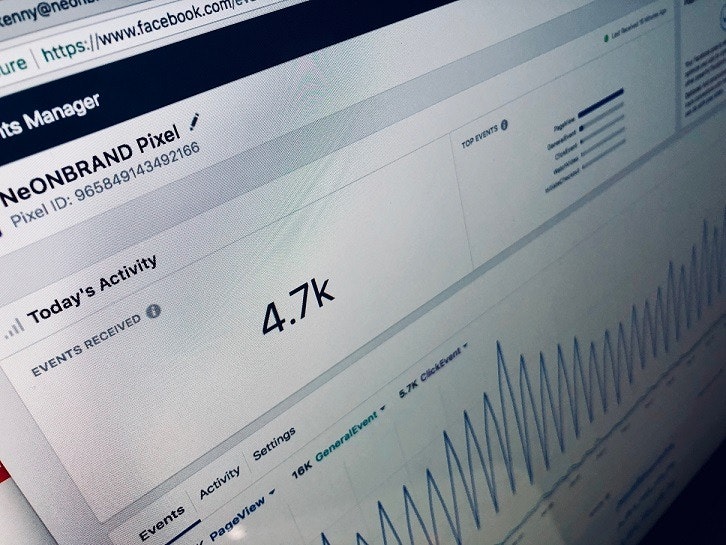
Rodney: Right, so we kind of just started testing the product ourselves first just to see, okay, how are people gonna use this on a daily basis, what’s the utilization of it, what type of target customer audience would we be looking for for this product and…
Kory: Then coming up with a storyboard. Okay, so what are the most benefits that we wanna pack into like the 30-45 second video. Like first and foremost was putting this around your neck, if you drop it, it’s not falling and you’re not cracking your screen. Which I don’t know, I’m sure most people out there have done that multiple times. We’ve done that with our own phones. So first and foremost…
Rodney: To engage an emotional response.
Kory: Yeah, engage an emotional response.
Get Into the Consumer’s Mind
Jessica: So I’m pausing you there. So your first step was really to think of the benefits and the utility. First by…
Kory: Yeah.
Jessica: Trying the product yourself and then using those thoughts to say, “Okay, how do we show these utility and add a layer of emotion to it?”
Kory: Right.
Rodney: Yeah, get into the mind of the consumer and play off of a scenario that most people have, kind of, experienced in their life. Dropping a phone or dropping something into water that’s very expensive is a very emotionally triggering experience.
Jessica: Yeah.
Rodney: So it kind of right off the bat gets their attention and…
Kory: That and the whole thing of when your phone is in your pocket, something might… Something else might be in your pocket, too. And if you see something that you wanna capture right away like a train going by or a boat or birds or whatever it is, you have to have your phone right now. And if you’re fumbling to try and get it out or you don’t know which pocket it’s in, you miss the opportunity. So with this just hanging around your neck, it’s, “Okay. Oh, here it is.” I can just pull it up right away, I click the photo button and I’m already set to go.

Jessica: So your first step here was actually more in like understanding the product versus understanding the audience. You decided to create the video ad first and then distribute it.
Kory: Yeah absolutely.
Rodney: Yes.
Kory: If we see the utility and then we think we would use it, then we’re not the only two people in the world that would be using it. There’s gotta be other like-minded individuals. So we already know that it’s gonna be something that, yeah, you can definitely find an audience for.
Jessica: Let’s actually play your video ad for the audience now.
Rodney: Alright. So, yeah, right off the bat, just kinda…
Kory: And this is a classic one, the phone’s on the table, always knocked off. Cool birds above.
Jessica: Cool birds. Yeah, that’s right.
Rodney: Showing the protection of the case as well.
Jessica: No cracks.
Rodney: So in case it does hit the ground or hit a table or something it’s still gonna be protected.
Kory: And then yeah, slides in and slides out.
Rodney: Quick assembly, how you use it.
Kory: Yeah.
Rodney: Just clear and concise.
Jessica: Some things that stand out to me are… You chose the most emotional like he dropped it in the water for the first couple seconds of the video. And then you’re going for other… kind of emotional moments like another dropping scene, one where the phone falls and only after you get through those, do you start talking about how it’s easy to assemble, like the dry facts.
Rodney: Yeah, you have a few seconds to capture people’s attention. With social media, their attention spans, obviously, are super, super short these days. So if we can get their attention with that two or three second period where they are scrolling through, and they see something that is engaging versus just another product that they might just pass by because they’ve seen it a million times.
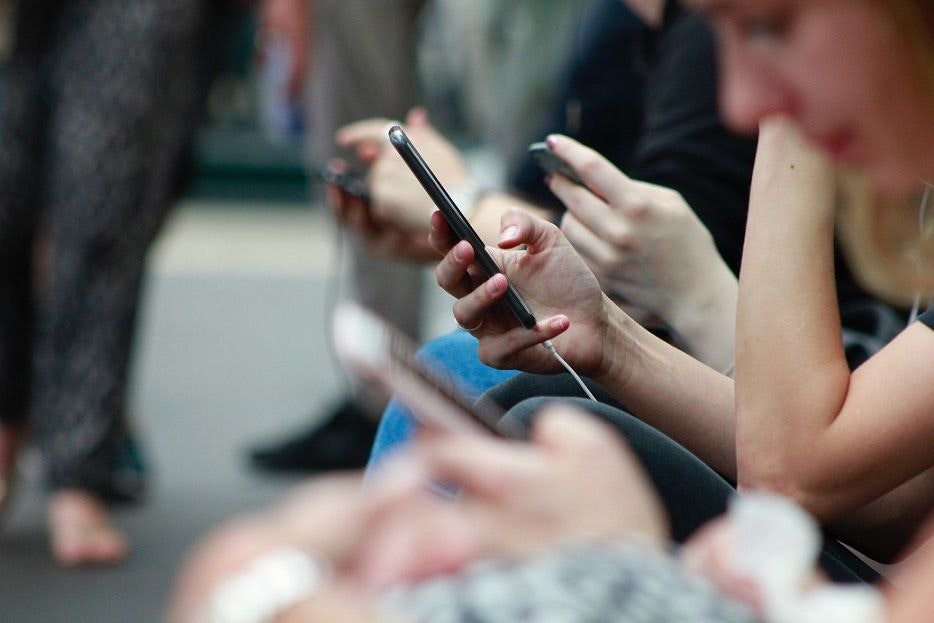
Kory: Yeah, more often than not, a cell phone case is easy to assemble.
Jessica: Yeah.
Kory: Right, so to make that the unique selling proposition is really not gonna differentiate you from anyone else.
Creating the Product Video
Jessica: Talk to me about the tools you used to create this video. Was… Did you have a professional camera or editing system?
Rodney: No. Yeah, so we wanted to kinda do it. We kinda go off the basis that we like to bootstrap everything and show that AliExpress dropshipping is something that everyone can kind of do and it doesn’t take a… There’s not a huge barrier to entry to kinda enter this space. So we just did this with an iPhone and then iMovie on the iPhone.
Kory: Yeah.
Jessica: Oh, free video editing software basically.
Jessica: Yeah, free tools.
Rodney: Free tools available and just ourselves as the actor and the cameraman. So…
Jessica: Okay, so really, so anyone with iMovie essentially can do this for free.
Kory: Yeah.
Rodney: So it doesn’t take a huge budget, or a huge like professional camera or actors and stuff to create video ads that that will convert.
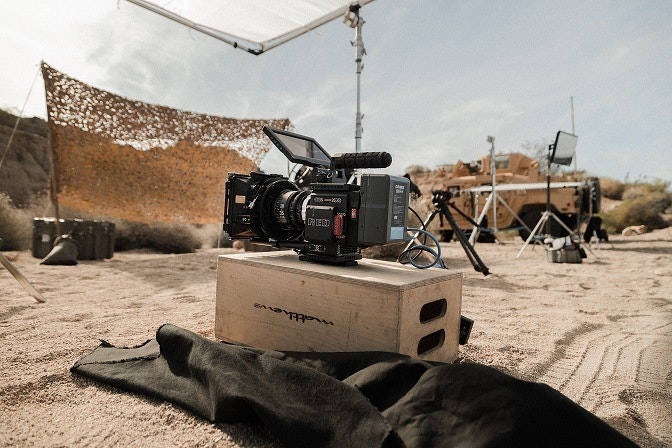
Step 1: Choose “Conversions” as Your Campaign Objective
Jessica: Now, you’ve got this great video. Now, let’s talk about how you would go into Ads Manager and set up this completely new ad. We’ll use an account for one of my test stores here. So the Facebook Pixel truly will be uninformed and new for you. And I’ll go ahead and create a campaign, what now?
Rodney: Alright.
Jessica: Yeah, we’ll move this a little bit.
Step 2: Turn Campaign Budget Optimization (CBO) On
Rodney: So right off the bat, we’re gonna go into conversions for our marketing objective, just because that’s what generates the best results, ’cause obviously we’re going for conversions. So we’re gonna use campaign budget optimization in here, and then depending on your marketing budget, so you can spend $100 a day, you could spend $1,000 a day, you can spend $10 a day.
Jessica: I wanna spend $10 a day.
Rodney: $10 a day. Okay.
Jessica: And that’s it. You wouldn’t do… I know CBO, some people don’t, some people do. You go ahead and do it.
Rodney: Yeah, yeah, so with CBO, with Facebook ads, I don’t know if you guys are aware of this yet, but Facebook is pushing towards CBO for the next… For 2020, everyone is eventually gonna have to switch over to CBO.
Jessica: Okay.
Kory: Yes, try and learn things beforehand, so that it’s not an entirely new space for you as it comes. Like we know Google and Facebook kinda both change things every few months. So if you can stay on top of that, then you’re already one step ahead of your competitors who are gonna wait till the last moment and be like, “Oh no, what do I do now?”
Jessica: Yeah. We have comments on our videos asking us what to do.
Rodney: Yeah, yeah, so it’s just kind of preparing for the future.
Jessica: Okay so now we’re at the ad set level and conversion event is always a tricky one for people.

Step 3: Select “Purchase” as Your Conversion Event
Rodney: So conversion event, your conversion is generally gonna be purchase.
Jessica: Even if it’s a new store and has never had purchases before.
Rodney: Yes.
Jessica: Okay. And I get this little pop up that says my ad may not be optimized. What do I do?
Rodney: So that’s just a little helpful tip. These pop all the time on Facebook. You can read it just to inform yourself, but yeah, it should be fine.
Jessica: Just ignore it, basically.
Rodney: Just ignore it, yeah. Okay, and then you’re gonna wanna create a new audience here. For targeting the United States, which generally is the biggest ecommerce market in the world right now, this is what we’re gonna be wanting to target.
Step 4: Create a New Audience and Target the US
Jessica: Should I create multiple ad sets targeting different locations or do you suggest I just start targeting the US?
Rodney: I would just start targeting the US, in general.
Jessica: Okay.
Kory: We like to work broad scope in the beginning and then once you collect some data you can see, okay, maybe all of my sales came from Los Angeles or Miami. Or maybe they came from somewhere in Ohio. You would never know that beforehand, unless you really, really did your research, And somehow you were able to obtain that information. So yeah, the United States is the biggest market currently. So start in all of the USA. But when it comes to age, how many 65-year-old pluses are using smartphones like that? So you really wanna be aware of, like, what the demographic with the highest likelihood of purchase is gonna be.
Jessica: Okay, that’s interesting because some people say you should not make any exceptions and you’re saying, Well, some assumptions, maybe for a product like this.
Step 5: Narrow Age Range to People Likely to Use Product
Kory: Yeah, some assumptions may be necessary, like… That’s not to say, Nobody over 65 knows how to use a smartphone. But more often than not, a lot of those people haven’t adapted to the technology of this day and age. So why would you wanna waste money when you’re testing on it? If you are seeing some conversions and you have a demographic set up between 18 and 35, great.
Now, in your next ad set, you could do maybe add ten years to that, and keep going until you see maybe that the budget is being spent and it’s not working as properly, or you can section out the age groups into different ad sets.

Jessica: Okay. 18 to 35? You guys, I’m 35, I would wear something like this. I feel like if I’m one year older I might, but you’re gonna test it, and if you don’t see conversions, you might go up or go down.
Rodney: Expand it. Yeah exactly.
Kory: Because that’s the whole point of testing, right, is, like, you can’t just assume you’re gonna hit it every time. You almost want to… No, I wouldn’t say you want to fail but you wanna know what you can and can’t target.
Jessica: I see, okay.
Rodney: Right. Yeah. To further target it down.
Step 6: Leave All Genders Selected
Jessica: All genders, even though this is a product that kind of strikes as almost like purse-like, you would still do all genders?
Rodney: Yeah, to start. And then if we started to see trends towards either male or female, then we can kind of target our ads towards that as well. So for this particular product, it is for an iPhone XR. So assuming that we’re just selling iPhone XR cases, we would target this here.
Jessica: So the interest here was behaviors, mobile device users, all devices by brand, and then iPhone XR eventually.
Rodney: Correct. So this right away will narrow it to the people that are gonna be able to use your product, so you’re not gonna wanna target this product to people that are Android users because their phone won’t fit in this product.
Kory: And if you’re only sourcing the iPhone XR case, then yeah, why would you do it to iPhone 6?
Jessica: Yeah, that makes a lot of sense. If you were selling this, this does come available for other iPhones. How would you change that?
Rodney: Yeah, so you can just go on here and you can target each…
Jessica: You just list each one?
Rodney: Yeah, yeah.
Jessica: And put it in the same ad set? Okay.
Step 7: Narrow Audience to a Relevant Interest and Select Engaged Shoppers
Rodney: Yeah. So right now you’re at 110 million people. That’s quite a broad audience.
Jessica: Should you leave that checked? Sometimes no.
Rodney: “Expand your detailed targeting to reach more people when it’s likely to improve performance.” You can test it as well. So for us, we do keep that checked.
Jessica: You do, yeah.
Rodney: But again, it’s dependent on the product. It’s gonna vary a lot. And then for here… So we’re gonna go to engaged shoppers right here. So, essentially what this is, is people have clicked on the ‘call to action‘ button or the shop now in the past week. So these are people that are engaging with advertisements already, so you already know that these people aren’t just browsing past products and not clicking them. So these people generally have a higher engagement rate…
Jessica: Cool.

Rodney: And higher likelihood conversion rate. Alright, so now this reduces our target audience to 2.3 million people, so you can see there’s a huge reduction right there.
Jessica: Is that about the sweet spot that you’re looking for?
Rodney: Yeah, so generally we try to go for like two to five million people to kinda start off with. You can go more, but you generally wanna target it to roughly under 10 million to as a starting point and then from there, you can kind of target it down. So from there, we are going to go down. And… Okay, so we are gonna change the placements here from automatic placements.
Jessica: You didn’t do anything with language or anything like that?
Rodney: No. Generally, we’re advertising to the United States. Actually, I guess we could, yeah.
Jessica: Maybe not a big difference-maker, just a…
Rodney: No yeah… I don’t think it’s a huge difference-maker especially, maybe if you’re targeting a country that speaks multiple languages or speaks one language specifically, but…
Jessica: Switzerland?
Rodney: Yeah.
Kory: Yeah.
Step 8: Edit Placements
Rodney: Yeah. Alright, and then automatic placements here, it’s recommended, but we don’t use it generally. We find the highest converting is through Facebook posts and Instagram posts.
Jessica: Oh, okay.
Rodney: Right here, so. Or, sorry, the Facebook news feed and the Instagram news feed. So, we’re gonna uncheck “audience network”, uncheck “messenger”. And again, if you have a higher budget, and you wanna really in-depth-ly test this, you can test all of these to see what’s kind of working and what you’re getting engagement with but if you’re starting with a lower budget, you’re gonna wanna go with the highest converting placements to begin with.
Kory: Key in your placement.
Rodney: Yeah. So we’ll just uncheck this here. Facebook news feed, Instagram news feed. And we’re not gonna do Facebook Stories or Instagram Stories, just ’cause our video isn’t optimized to the story format. Un-click all these here. There we go. And so you’re gonna start off with the lowest cost bid strategy, so it doesn’t have cost control, you can do big caps, and kind of target caps, but to begin with, the best is just to let the algorithm play-through and see what it costs to acquire clicks and conversions to start.
Jessica: I have a question though, here should I edit the devices so that I’m only targeting people with an iPhone or does that not make sense?
Rodney: It should be fine just because this up here, it only targets people that are having or accessing Facebook through an iPhone XR.
Jessica: Oh…
Rodney: So that…
Jessica: Accessing Face…
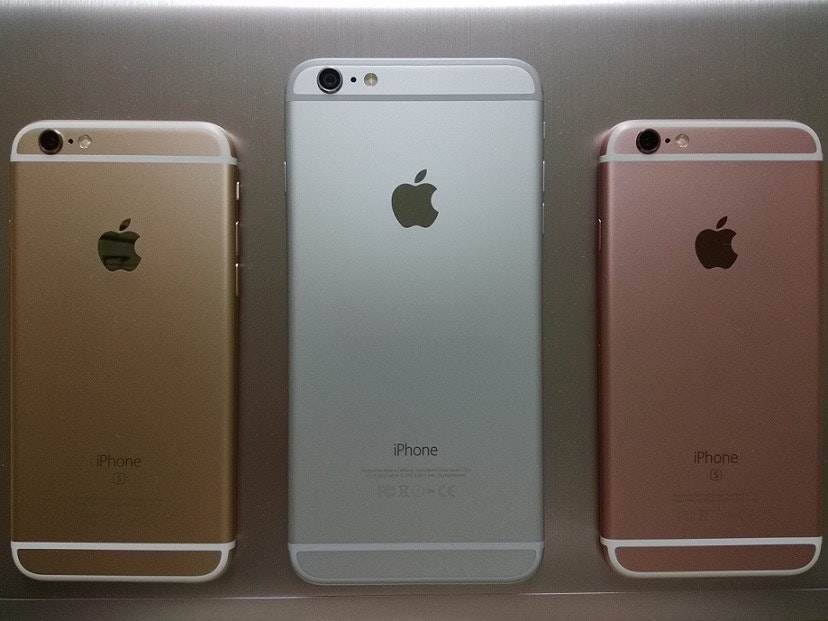
Rodney: Yeah, so that should automatically adjust itself. But you can if you wanna…
Jessica: I guess I want it to be okay if someone sees my ad on their desktop, but wants to buy it for their iPhone. I don’t wanna limit them so that should…
Rodney: Right.
Jessica: Okay.
Step 9: Highlight Features and Benefits in Ad Copy
Rodney: Yeah. And then from there, you continue. Alright, and then, so from here, you would… Here’s your Facebook account up here, and then you would go and select your Instagram account that you’re gonna wanna be posting on because you’re marketing on Instagram as well. And right here, single image or video. And then we would add media. Add video. From there, we would upload the video. All right, and then for here, you would add your primary text and your primary links, so your text right here, we would highlight kind of the key benefits of the product. So.
Jessica: Never drop your phone again?
Kory: Yeah.
Rodney: Yeah.
Jessica: Exclamation point?
Rodney: Exclamation mark, yeah.
Kory: Exclamation mark. Yeah, we have the video, so the next scene was knocking it off, “Never miss a moment.”
Jessica: “Never miss a moment.” Exclamation point?
Kory: Yeah.
Rodney: Yeah.
Jessica: Okay.
Rodney: And then from there…
Kory: Easy to adjust and assemble or easy to assemble and adjust.
Rodney: And then we would also highlight the materials used in it. So.
Kory: Nylon…
Rodney: Nylon paracord?
Kory: Yeah.
Jessica: Braided nylon and sturdy plastic? Do we know?
Rodney: High-quality acrylic.
Jessica: Oh, okay…
Kory: Yeah.
Jessica: That sounds so much better.
Rodney: Yeah.
Jessica: High-quality acrylic. Now, will Facebook cut this off after three lines?
Rodney: Yeah, yeah, so you can adjust it as well but it’s… You essentially wanna get your main message into the first three lines there.
Jessica: Would you sprinkle some emojis in there?
Rodney: Yeah I definitely would, yeah.
Jessica: Okay.
Rodney: So, “Never drop your phone again.”
Jessica: Maybe the scream emoji.
Rodney: Yeah.
Jessica: Maybe the sunset emoji?
Rodney: Yeah.
Kory: Yeah.
Jessica: I’m a natural. Okay.
Kory: There we go. Easy to assemble like the hammer emoji.
Jessica: Yeah.
Rodney: Or a thumbs up?
Kory: Or thumbs up, yeah. There you go, yeah.
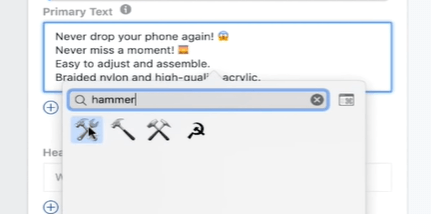
Jessica: So you’re not putting a Bit.ly link or anything in the caption?
Rodney: No.
Jessica: Okay. Is that what you would recommend for the primary text? Anything else?
Rodney: “Never drop your phone again, never miss a moment, easy to adjust and assemble. Grab yours while supplies last.”
Kory: I guess one thing we definitely did forget too, was probably wanna mention what the product is, as well…
Rodney: Yeah.
Kory: In primary text.
Jessica: Oh, okay.
Rodney: Yeah.
Kory: Yeah, I guess phone lanyard or brand new phone lanyards. Secure phone lanyards.
Rodney: Secure your phone with…
Jessica: Secure your phone with these…
Kory: These phone lanyards, brand new phone lanyards.
Jessica: Maybe just keep… Could we just keep it at that, or do you think the rest is important to keep there?
Rodney: Yeah, we could do. Yeah, let’s keep it at that.
Jessica: Okay.
Rodney: That way, it’s not cut off. ’cause the video’s self-explanatory.
Jessica: For primary text, you recommend something pretty simple. “Never drop your phone again,” with a scream emoji, and that kind of reiterates what you did in the first couple seconds of the video.
Rodney: Right.
Jessica: And then because you don’t mention what this product is in the video you make sure to do it here. So secure your phone with these brand new phone lanyards.
Kory: Yeah.
Rodney: Yeah.
Jessica: And just keep it simple. Keep it like that?
Rodney: Yeah.
Jessica: Cool.
Rodney: You can even add some buzz words in there, like, “high quality” or “fashionable” phone lanyards, to kind of insinuate the…

Jessica: I like how that kind of runs.
Kory: Yeah.
Jessica: Okay.
Rodney: And then from there, so we would fill in the headline, so we would have the product name, and we would put the product cost, as well.
Jessica: Okay, so phone lanyard $19.95. And then what would you put in the product description?
Kory: High-quality acrylic phone case with braided nylon cord, easy to adjust.
Jessica: And this is all gonna appear below the headline.
Rodney: Mm-hmm.
Jessica: Okay, great.
Rodney: Available in multiple variants.
Jessica: Would you say “variants”?
Rodney: “Colors”, sorry.
Jessica: Color. Okay, and then the destination obviously would be the product page.
Kory: Yeah.
Rodney: Yeah.
Jessica: Right. Okay, display link. Would you put anything here?
Rodney: No, no.
Jessica: Okay. And call to action.
Rodney: Shop now.
Step 10: Run Ad for Three Days
Jessica: Shop now. How long would you run this ad before you would analyze the results?
Rodney: At least three days.
Jessica: Okay, three days, and then if something’s not working, would you kill it or would you adjust it?
Rodney: So we would adjust it, so we would look at the kind of conversion funnel and see, okay, are people clicking? If people aren’t clicking, okay, it’s probably the ad, to begin with.
Kory: That or the ad copy, right? It’s a simple ad that we currently have right now, and the ad copy’s even simpler. So you don’t have to spend a ton of time to just get an ad to test out there, but if you do realize, okay, I’m not getting any clicks, but it is a good product and they are being sold on AliExpress or we see them being sold, maybe I have to go back and my ad copy needs to be more descriptive, or maybe I need to put in more emojis or make it more eye-catching, or the details underneath need to be more promising for someone to realize, oh, this might actually be a good idea, okay, I’ll click on it now. Three days is probably the baseline for what we say.
Jessica: Cool.
Rodney: Yeah, don’t panic and don’t let your emotions dictate what you’re doing, because you’re probably not gonna get any sales at the very beginning, so it’s just collect the data and analyze it from a non-emotional point of view.

Jessica: Cool. What’s the biggest mistake someone could make when launching a simple ad like this?
Rodney: Just getting their targeting incorrect, so if you’re targeting the wrong people, you’re gonna be sending… It could be an amazing product, but you’re sending it to people that aren’t interested, so it’s not gonna do very much.
Kory: Make sure your website link is proper, and make sure it’s not a broken link.
Rodney: Yeah.
Kory: We’ve put ads up before and for some reason the link goes to a 404.
Jessica: I know.
Kory: So always double, triple check that. Make sure, because then you’re just losing money for nothing. And maybe they did wanna buy the product, but they get to the page and it’s nothing, so you’ve lost them, and they’re gonna go on Google or Amazon and try and find it elsewhere.
Rodney: Another thing as well is when you’re duplicating ads, make sure that you go into page post and you copy the page post ID, just so you can retain that engagement from the original ad instead of creating a bunch of new advertisements.
Jessica: Cool.
Rodney: And build social proof.
Jessica: Everyone thinks there’s a Facebook formula that should work for all products, but in your experience, is that true?
Rodney: No. The formula is adaptability, just continually reflecting on what’s not working and how you can improve it. And just look at it from a rational perspective and get into the mind of your consumer and see, okay, why isn’t this working? There’s a reason why it’s not working, and if you can reflect on that and get down to that, you can continually improve until you get to that point where it does.
Kory: Yeah, we’ve watched countless hours of Facebook videos and blog reading about Facebook advertising and you come across an amazing formula, and this is supposed to work, but then it’s applied to an entirely different industry, or something maybe service-based. It sounds in theory like a really really good plan, and then you apply it to your product and you see no results, right? And then, the same thing… Maybe they’re actually, this person’s looking for it on a different platform, right?
If I was trying to find this phone lanyard on Facebook, how long would it take me to scroll through my newsfeed to come across the advertisement? I may never come across it. But if I go to Google and I search for it, well, I’m gonna get links to it everywhere, right, or images to it in Google shopping ads, so…
You gotta think like the consumer and be like, well, if I was this person, is it more of a hot item that just came out and you can catch their attention, or is it an item that it’s constantly in demand and people are always looking for it? So where do you wanna put yourself?
Jessica: Yeah, cool. All right, so what do you think about their Facebook ad process? Do you think their ad would actually be effective at converting traffic? What would you change in their strategy? Leave a comment and let me know. I’ll chime in with my thoughts, and the dropshippers might chime in with their thoughts, too. Until next time, learn often, market better, and sell more.



Want to Learn More?
- I Spent $191,480.74 on Facebook Ads. Here’s What I Learned.
- 10 Facebook Stats Every Marketer Should Know in 2020 [Infographic]
- Your Guide to Facebook Analytics
- The 20 Best Mobile Video Editing Apps You Must Use in 2020
